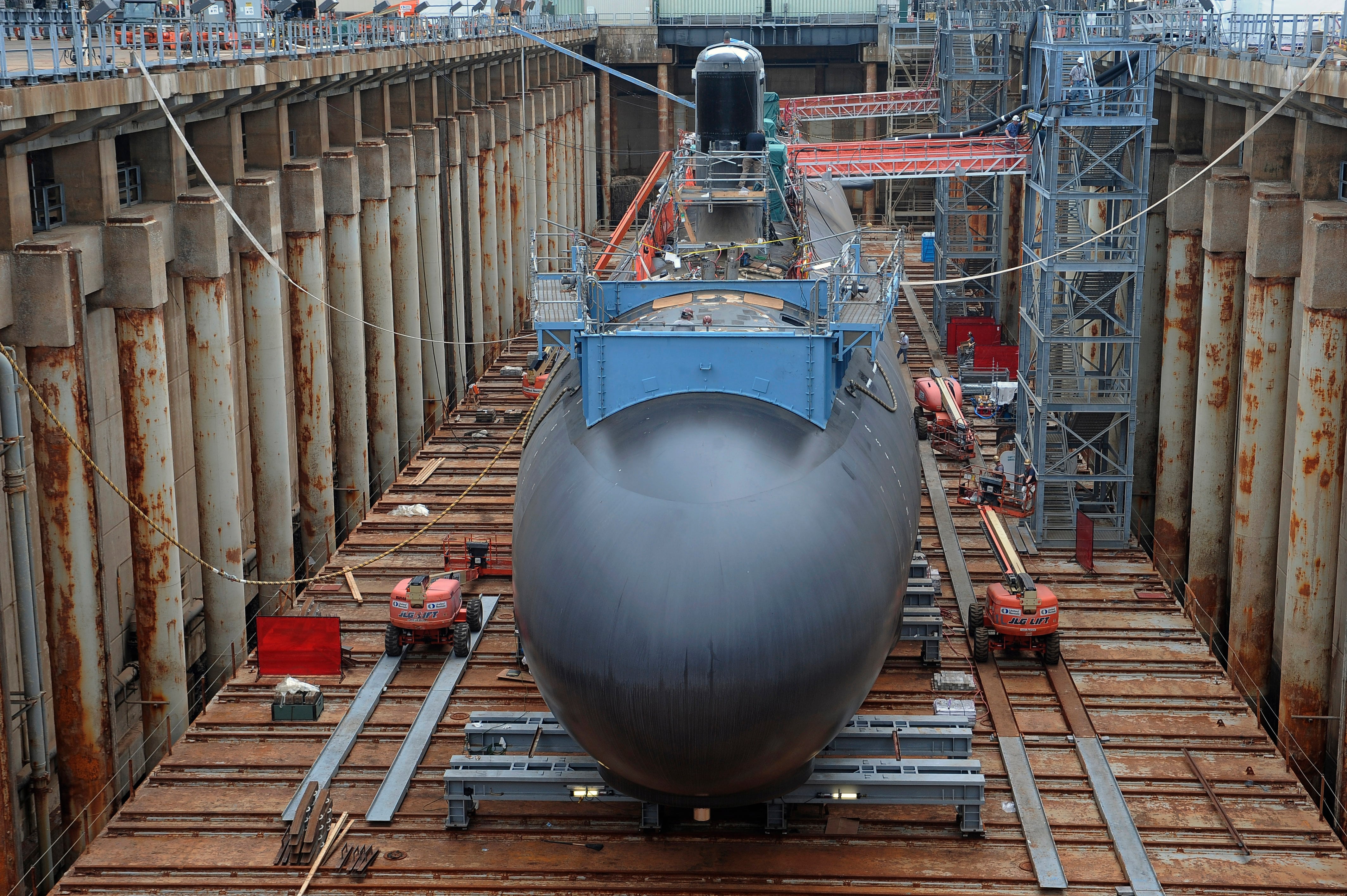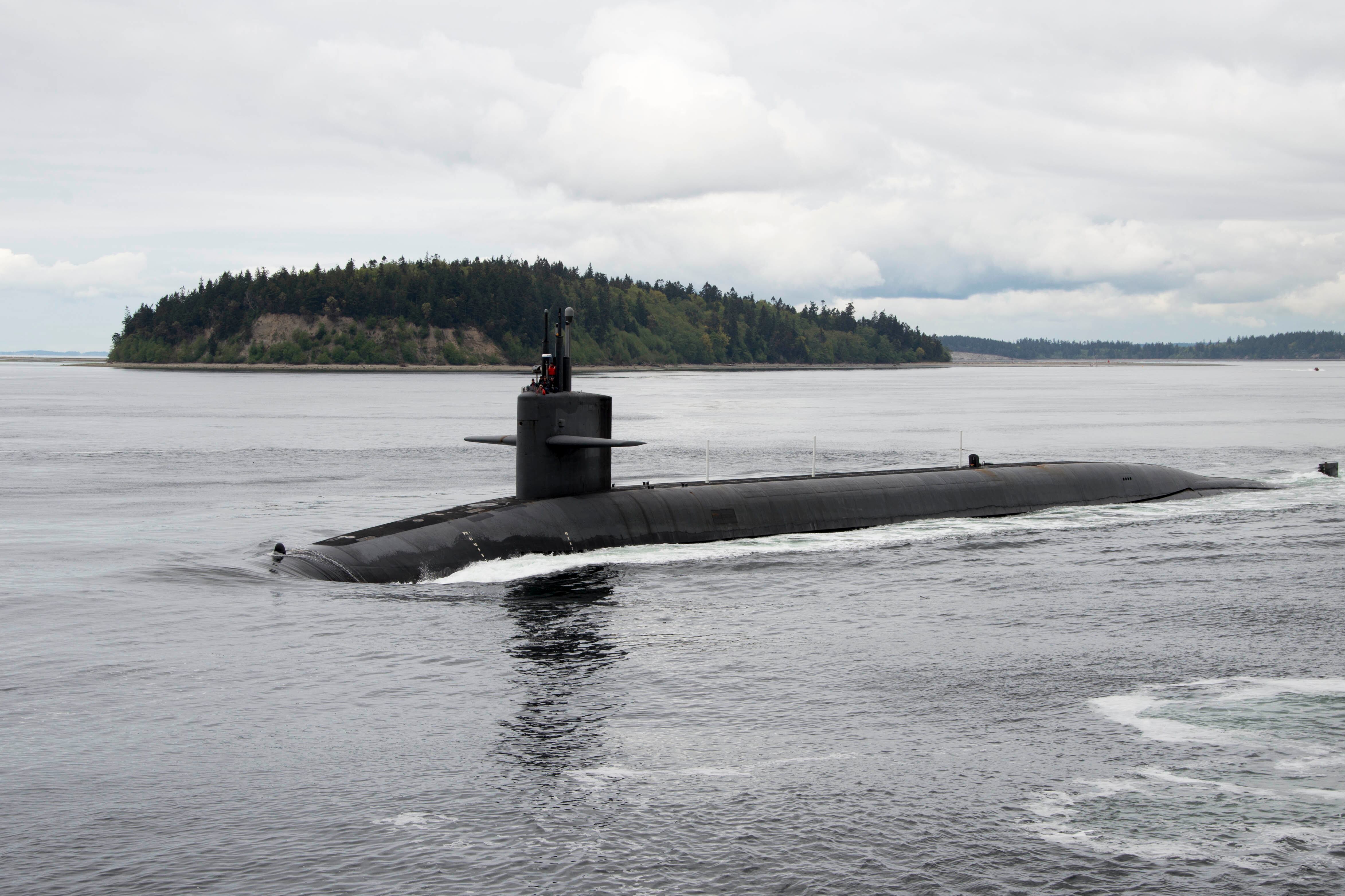WASHINGTON -- The U.S. Navy’s $122.3 billion Columbia-class ballistic missile submarine program is off to an inauspicious start after faulty welding was discovered in several missile tubes destined for both the Columbia and Virginia-class programs, as well as the United Kingdom’s follow-on SSBN program.
In all, 12 missile tubes manufactured by BWXT, Inc., are being scrutinized for substandard welds. Seven of the 12 had been delivered to prime contractor General Dynamics Electric Boat and were in various stages of outfitting, and five were still under construction. The Navy and Electric Boat have launched an investigation, according to a statement from Naval Sea Systems Command spokesman Bill Couch.
“All BWXT welding requiring volumetric inspection has been halted until the investigation is complete,” Couch said.
The bad welds came to light after discrepancies were discovered with the equipment BWXT used to test the welds before shipping them to GDEB, according to a source familiar with the issue.
The discovery of a significant quality control issue at the very outset of fabrication of Columbia injects uncertainty in a program that already has little room for delays. The issue is made even more troubling because it arises from a vendor with an excellent reputation, and raises questions about whether the Navy can deliver Columbia on time, something the Navy says is vital to ensuring continuous nuclear deterrent patrols as the Ohio class reaches the end of its service life.
RELATED

The issue with the missile tubes, part of the common missile compartment to be installed in both Columbia and the UK’s Dreadnought submarine program, should not put the Columbia program behind schedule, Couch said. The impact on Royal Navy’s Dreadnought program is less clear, Couch said.
“Impacts to the delivery of missile tubes to the UK will be assessed upon completion of GDEB’s efforts to define and scope next steps,” Couch said.
BWXT is one of three vendors sub-contracted to deliver tubes for Columbia and Dreadnought and one of two on contract for Virginia class, Couch said. The quality control issue not only impacts the U.S. and U.K. ballistic missile submarine programs, but might also impact the schedule for the Navy’s next iteration of the Virginia class, Virginia Block V, which incorporates additional vertical-launch missile cells, known as the Virginia Payload Module.
“The Navy is assessing the potential impact to Virginia-class submarines with VPM,” Couch said.
Early indications are the issue is contained to just tubes fabricated by BWXT, Couch said.
“The Navy/GDEB team is working to bound the scope of the problem and engineering assessments are ongoing to assess and determine remediation for the identified issues,” Couch said. “Initial reports indicate that the other vendors do not have the same issue, and they continue to produce missile and payload tubes.”
The Navy awarded General Dynamics a $101 million contract for SSBN missile tubes back in 2016. Design work for the common missile compartment goes back nearly a decade. In September, the Navy awarded a $5.1 billion contract to General Dynamics Electric Boat to finish design work for the boat ahead of beginning construction in 2021.
What impact the faulty welds will have on the cost of either Columbia class, already among the most expensive programs in Defense Department history, or Virginia class is unclear, said a Navy official familiar with the details speaking on background. A July Congressional Research Service report put the cost of acquiring the 12-ship Columbia class at $122.3 billion.
“It’s not a good sign for a program that has had a lot of attention, it’s the Navy’s number one acquisition priority,” said Bryan Clark, an analyst with the Center for Strategic and Budgetary Assessments and a retired submarine officer. “It’s an early and pretty significant failure in a major component from a manufacturer with stellar reputation.”
RELATED

In a statement, General Dynamics said the company was committed to limiting the impact on the U.S. and U.K. sub programs.
“General Dynamics Electric Boat is investigating a weld issue identified by one of its subcontractors on missile tubes delivered to GDEB for use in the U.S. COLUMBIA and UK DREADNOUGHT SSBN programs and payload tubes for the VIRGINIA Class SSN program,” the statement reads. “GDEB is working closely with the subcontractor and the Navy to mitigate any potential impacts to these programs. As our customers expect the best from us, safety and quality are central to the culture at General Dynamics Electric Boat.”
The Navy needs to start construction on Columbia in 2021 to have the boat out on patrol by 2031, a schedule NAVSEA still thinks its on track to meet.
“The Navy purposely planned for early construction of the Common Missile Compartment including missile tubes and first article quad pack, to mitigate risks such as these, and construction start for Columbia remains on schedule in FY2021,” Couch said.
Ultimately, however, it is probably too early to tell if there will be any significant impact to the Columbia schedule, said Clark, the CSBA analyst.
“The problem is that this causes challenges down the line,” he said. “The missile tubes get delayed, what are the cascading effects of other components down the line? It’s a pretty intricate dance at Electric Boat when it’s building two other fast attack boats at the same time so what the impact of a delay here will be might not be clear.”
The question of whether the Navy can recover from the setback is still an open one, said Thomas Callender, also a retired submarine officer and analyst with the Heritage Foundation.
“The Navy does not have a lot of margin in the time-frame for the class, especially in the first hull, so that is a worry.”
David B. Larter was the naval warfare reporter for Defense News.








